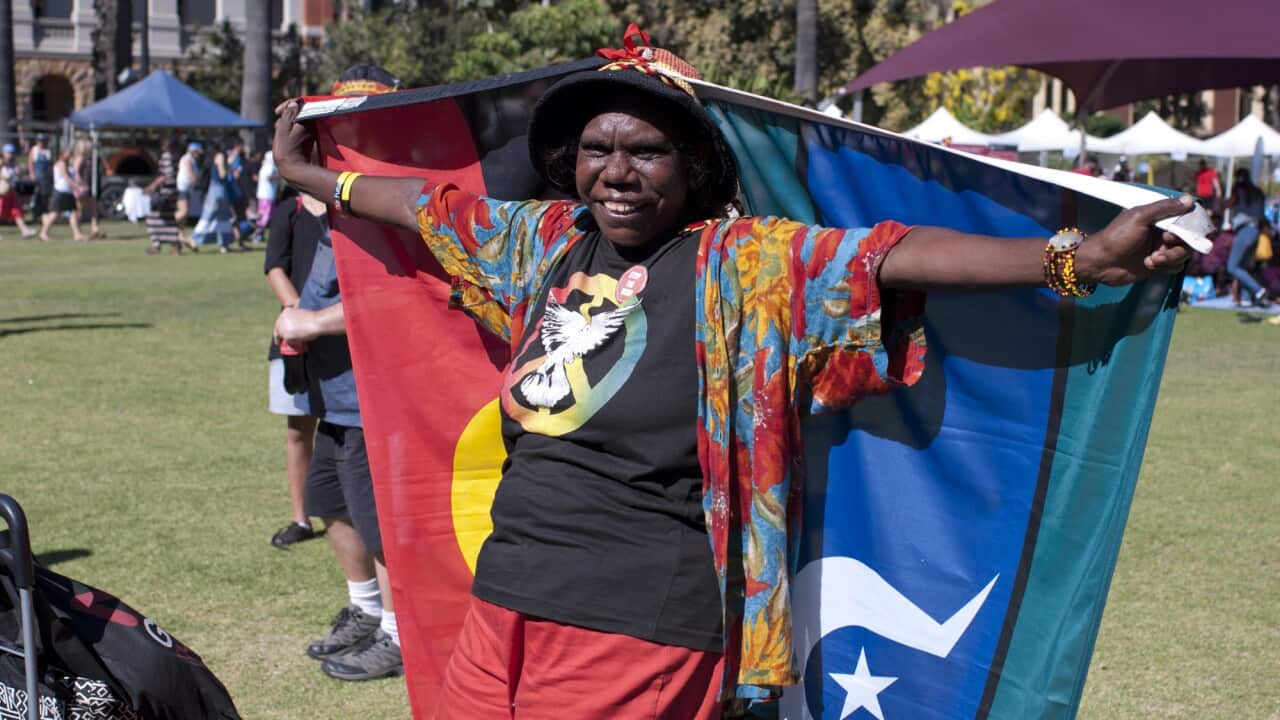TRANSCRIPT
Natalie Ahmat: Over the last few weeks, several cowardly and deadly attacks have shone a harsh light on the issue of family and domestic violence in Australia.
Indigenous women are about twice as likely to be a victim of physical or threatened violence - and about 30 times as likely to end up in hospital as a result.
RELATED READING

Indigenous Australian women still fighting discrimination
Now, the Labor Party is calling for a crisis summit next month to take a national approach to ending family violence.
Myles Morgan: Charmaigne Weldon is at the frontline of domestic violence in Sydney.
She had five clients last week - an increase.
Charmaigne Weldon, Redfern Legal Centre: What I do is I talk to women on the day to make sure she's safe, for one, and to make sure that the AVO is what she wants with the conditions, whether she wants him excluded.
In Canberra, the Government is sending a message to Australia's next generation.
Michaelia Cash, Minister Assisting the Prime Minister for Women: Women and children in Australia should be safe. They should be safe at home, they should be safe on the streets, and, given that technology is literally something that is part of our lives literally 24/7, they should also be safe online.
Family violence has reached a crisis point - but not a new one for First Nations women.
What I do is I talk to women on the day to make sure she's safe
The domestic violence statistics are truly horrifying - keep in mind there are only approximately 300-thousand Indigenous women in Australia.
Yet they're four to 12 times more likely to be physically assaulted than non-Indigenous women, about three times as likely to be sexually assaulted, and about 30 times more likely to end up in hospital as a result of family violence.
Lifeline counsellor David Hollier says even though the physical rates of harm are shocking - some abusive relationships involve no physical harm.
David Hollier, Lifeline Counsellor: It's that threat of violence that is used to draw the women into a pattern of subjugation where they're manipulated and controlled. The key element is they're in a state of fear and once that's established, perpetrators never have to use violence.
The Labor Party is calling for a crisis summit with the government next month.
The Labor agenda:
- Ensuring no victim goes to court alone, as well as the party's commitments of
- $50 million for legal services - including Indigenous ones,
- $15 million to 'safe at home' grants - so women aren't forced to leave their homes
- $8 million on 'perpetrator mapping'.
Shayne Neumann, Shadow Indigenous Affairs Minister: All of this information is critical. That's why we need a summit that brings together state and territory governments, law enforcement agencies, experts, those people who've also experienced domestic violence.
Tony Abbott, Prime Minister: I certainly don't rule out another summit, I don't rule that out at all.
There are some worrying attitudes to violence in some Indigenous homes where it's become normalised for offender, victim and family.
Charmaigne Weldon says the sporadic approach to funding organisations which are trying to reverse those attitudes is harmful.
Charmaigne Weldon: There's a lot of little services that they're trialling, I call them pop-services that haven't been around a long time, and you've got services that have been working in the field for such a long time that lost their funding and that's an important part of some of the service in the community.

